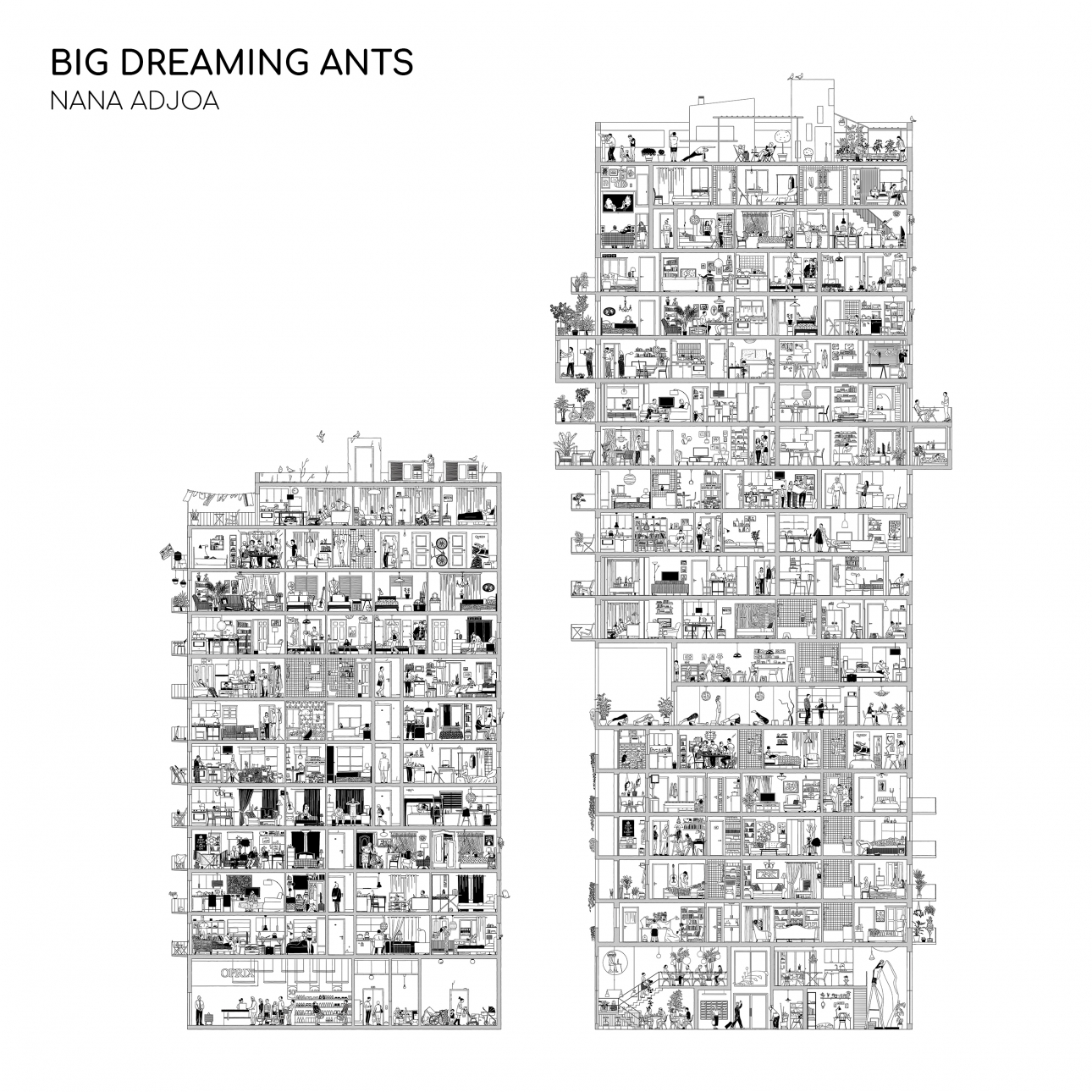Nana Adjoa
Big Dreamings Ants
BLOOMER RECORDS
7/10
I don’t remember when I learned the pledge of allegiance and I don’t remember the last time I said it. But at some point I questioned what I was conditioned to say every morning in school. This same heaviness and skepticism of conformity opens the expansive debut album from Dutch-Ghanian musician Nana Adjoa. The slow-burning “National Song” presents us with militaristic and barbaric symbols of nationalism—pitchforks and classroom barricades. Over a bellowing bass line and an eerily bright keyboard melody, Adjoa’s voice travels from a languid drawl to a silvery coo. “You know the words to your national song,” she sings during the chorus.
Her tone and lyrics don’t point to a specific country, but highlight an international ritual baked with traditional, antiquated notions of national identity. “You know the drill, drilled to belong,” she sings with a guiding empathy that points out the fantasy of unity from blind memorization. Within four minutes out of its swirling 38, Big Dreaming Ants illustrates enthralling production, thoughtful suspicion, and poetic compassion.
There’s a vague sense of unease that hovers over the moody first full-length from the Amsterdam-based multi-instrumentalist. The first handful of tracks tackle small talk’s blasé superficiality, architects of white lies, and protection from the “veiled violence” of social media. Adjoa surfs these waves of uncomfortable emotions with repose, a mixture of pastoral folk, vibrant highlife percussion, and gloomy alt rock acting as a whirlwind background. Adjoa’s even tone is both a strength and weakness. At the end of “She’s Stronger,” she finally breaks out her borderline whispery cool—although it’s striking, it feels a bit awkward in the mix of things.
Big Dreaming Ants covers a broad spectrum of invaluable questions. From originality to changing the future via one’s iPhone, Adjoa is preoccupied with both timeless problems and ones that could only exist in 2020. “Every Song,” a mid-album turning point, feels more like a religious hymn than a pop song. It’s followed by a cover of legendary Ghanian musician Ebo Taylor’s “Love and Death,” which serves as a tribute to her ancestry and highlife music, but also a reminder that future generations carry the past’s cornucopia of lessons learned and unresolved problems.
“I have learned to pretend / That I know how it feels to be free,” she sings on the somber “Who Do We Look to Now.” It’s a sobering self-realization that’s a stepping stone to liberation within itself. But answers only lead to more questions. Toward the end of album closer “I Want to Change,” simmering strings and combusting drums unsatisfyingly and abruptly fizzle out as Adjoa repeats the track’s title. There’s a hunger for action, but no portrayal of how to proceed. Big Dreaming Ants doesn’t instill hope, but it does reflect on difficult realities that ignite possible action. Adjoa illustrates that she’s a brilliant composer willing to ask the ugly questions, knowing the answers won’t come in an instant.









